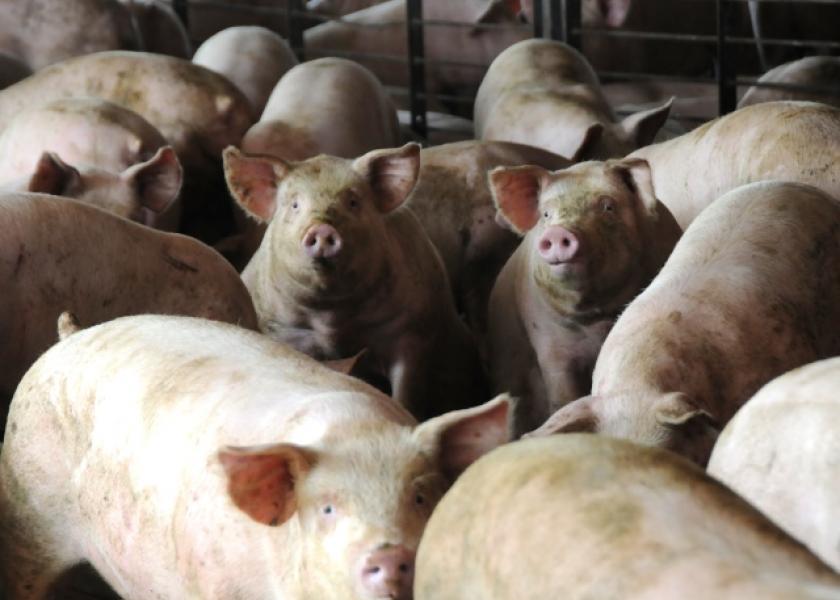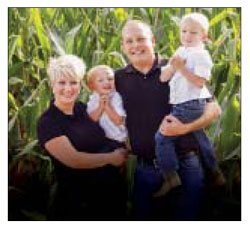Hog Facilities Raise Hackles in Farm Country

Kyle and Leah Broshears knew they would face a tough crowd at the Jackson County Board of Zoning Appeals meeting this past October.
The Seymour, Ind., couple had requested a permit to construct a 4,000-head feeder-to-finish hog building. What they didn’t expect was six hours of opposing comments to their plan.
“A hundred people were there to speak against us,” says Kyle, 34.
 After hearing concerns about odors, dust, property value declines and manure dangers, the Jackson County Board of Zoning Appeals unanimously approved the plan.
After hearing concerns about odors, dust, property value declines and manure dangers, the Jackson County Board of Zoning Appeals unanimously approved the plan.
Unfortunately, that victory and the previous unanimous approval by the county planning commission wasn’t enough—nor were the personal visits the Broshears paid to all the neighbors of the proposed site. Within 30 days of the hearing, they received a letter notifying them that they, along with every member of the zoning board, were being sued.
That letter brought their plan to a screeching halt. The county can’t issue a permit to the Broshears to build amid active litigation.
The case highlights how public opposition to animal agriculture today could translate into tougher scrutiny of other farming practices in the future. Understanding how plans for hog-operation expansions succeed or fail will ensure farmers have future growth opportunities.
Three Angles. Hog farmers tend to face three types of opposition, based on their state, says Eldon McAfee, an attorney with Brick Gentry P.C. in West Des Moines, Iowa. The first is public pressure.
“They try to put pressure on individuals to not build,” McAfee says. They can go so far as to make farmers look like they aren’t good neighbors or stewards of the land.
Second, during the permitting process opposing groups or individuals can try to convince officials to not approve a project.
 |
The Broshears hope to build an Indiana hog facility. |
Third are nuisance lawsuits typically centered on odor. “The opponents can have an attorney send a letter that says they will sue over an odor nuisance, if the operation is built,” McAfee says.
Another tactic is an anticipatory nuisance action, where the opposition wants to convince a judge that the operation, in the future, will be a nuisance and the court should stop it from being built. These type of lawsuits are rarely successful, McAfee says. However, the very threat of a nuisance lawsuit can cause insurance companies, banks and other partners back out of the project.
Seeking A Start. The Broshears grew up on farms and were involved with hog production.
“Once we had kids, it became important to bring our family back into production agriculture,” Kyle says. “I was able to buy out my family members on my grandfather’s farm, which gave us enough land and collateral for one barn.”
Livestock production is great for young farmers, says Moe Russell, president of Iowa-based Russell Consulting Group.
“Forty percent of our client base got started by building a hog or cattle building,” Russell says. “Lenders are willing to loan a high percentage of the value of the hog building due to identified cash flow.”
Yet the construction approval process is daunting. In 2002, Russell and his family decided to build a 7,200-head hog-finishing barn.
“We talked to all of our neighbors and asked them if they had problems with the plan,” Russell says. “They said, ‘No, but thanks for asking.’”
Similar to the scene the Broshears endured, Russell faced 42 angry community members at the public hearing. “We did get permitted but I learned a lot,” he says. “We went home and built a public relations plan and worked that plan.”
Five years later, when the Russells wanted to expand, the permitting process was a breeze. Only one farmer showed up at the second hearing. He supported the project and wanted some of its manure.
Expansion Troubles. For Darren Horstmeier, a producer in Hatton, Mo., expansion hasn’t gone as smoothly. Since 1994, Horstmeier and his father have raised hogs in eight 700-head buildings.
“There was a lot of criticism on our first eight barns,” Horstmeier says. Public opposition was so strong that it kept the Horstmeiers from expanding to 80 barns, which was the original plan.
Although the Horstmeiers didn’t end up in court in the ‘90s because they folded their expansion plans, they now face a new legal challenge. Eichelberger Farms, a large pork producer in Wayland, Iowa, approached the Horstmeiers about purchasing 20 acres to construct a sow-breeding facility. The proposed hog farm would house 7,600 sows and 2,700 gilts.
The Horstmeiers will not be involved in the operation of the hog farm but would, along with other farmers, receive manure for crop acres. Yet the Missouri farm family is being sued by its neighbors.
“I’ve been called everything from money hungry to someone who doesn’t care about the environment,” he says. “When those claims are discredited, they just call me stupid.”
He’s quick to visit with opponents and do interviews. “The last thing I want people to think is that we’re trying to hide anything,” he says.
The future is unclear for both the Horstmeiers and Broshears. But they aren’t backing down. The Broshears started a crowd-funding campaign at gofundme.com/saveourbacon to help cover their legal fees of $200,000.
“You always hear about how important it is to bring young people back to agriculture,” Kyle says. “Then as soon as someone tries, they find themselves in a lawsuit. But I don’t want to believe livestock production is over for young people in this country.”
To find resources and links to help make your voice heard on key issues facing farmers, visit agweb.com/agriculture-challenge
Put Your Farm’s Best Face Forward
Although hog operations can start or expand without significant opposition, when it’s there it can be devastating unless there is proper planning. Organize a public relations plan for your operation, advises Moe Russell, president of Russell Consulting Group. He and Eldon McAfee, an attorney with Brick Gentry P.C., provide these tips.
- Communication is key. Keep your neighbors well informed about the happenings of your operation.
- Share your farm’s bounty. Russell often provides sausage to the neighbors of his hog operation.
- Open your doors. Give tours to local school children, community college students and other interested groups.
- Don’t overpromise. You simply want the chance to show you will be a good neighbor and producer, McAfee says.







